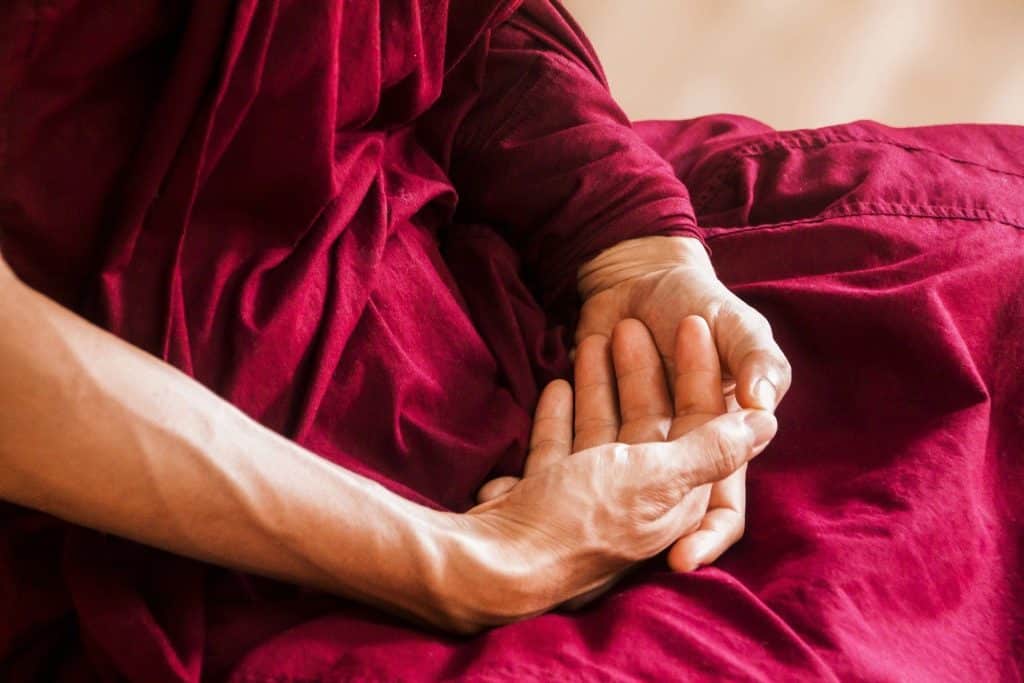- The Secret to Achieving Your BIGGEST Dream Even When It Feels Impossible - March 16, 2023
- 5 Powerful Habits for Dealing with Failure - February 11, 2023
- 7 Best Weight Loss Habits that Actually Work - July 18, 2021
Meditation for beginners aims to provide easy meditation tips to your daily practice.. Meditation is the art of focusing 100% on an area. Practicing it brings multiple health benefits, such as increased concentration, reduced anxiety, and an overall sense of happiness.
Although many have tried meditation at some point in their lives, only a few continue this practice in the long run. It is unfortunate, and the probable reason is that most beginners do not start with the necessary setting to turn meditation into a sustainable, useful practice. So use this meditation guide for beginners in order to start your journey into meditation.
The purpose of this article is to provide 20 practical meditation tips to help beginners overcome initial difficulties and make meditation a part of their daily routine.
Meditation for beginners –
20 meditation tips for beginners:
- Make meditation a regular practice. The only way to go to the next level in meditation is to set a time to be alone and calm (1 or 2 times a day).

- Stretch first. Stretching relaxes muscles and ligaments by allowing you to sit (or lie down) more comfortably. Also, stretching initiates the process of “traveling inward” and further draws attention to the body.
- Meditate on purpose. Beginners need to understand that meditation is an ACTIVE process. The art of focusing on a specific point is a difficult task, and therefore you need to be more focused!
- Notice when the feeling of helplessness creeps into you. And accept it! This is quite common among beginners, and they begin to ask, “Hey, what am I doing here?” Or “Why can’t I calm my damn mind yet?” When this happens, just focus on your breathing and release the feeling of helplessness. Give your thoughts a right to exist and just watch them instead of getting angry at them. Acceptance is the most direct path to any success!
- Experiment. Although many of us imagine real meditation as sitting in the Lotus position under a tree, beginners need to experiment more and try different meditation types. Try sitting, lying down, with eyes open or closed, etc. There are no hard and fast rules here. The important thing is to befriend the process!
- Feel all parts of your body. It is an excellent practice for beginners to pay attention to their bodies when the meditative state begins to envelop them. Once the mind has calmed down, focus all your attention on the feet, and slowly move up the body (including the internal organs). This is very healthy and shows that you are on the right track.
- Choose a specific room in your home where you can meditate. It is best if it is different from the room where you work, play sports, or sleep. Place candles and other spiritual items to help you relax. If that’s still not possible … set aside just a corner to charge with that energy. There is always a way. Don’t let circumstances stop you.
- Read a book (or two) about meditation. For some of you, it may be helpful to read an instruction manual or a book that talks about the meaning of deep meditation. This will motivate you.
- Commit to the long term. Meditation is a lifelong practice, and you will benefit most if you do NOT measure the results daily. Just do the best you can every day and then get rid of the thought.
- Listen to meditations online, meditation discs, or visit a place where someone guides you through the process. This is the fastest way to feel the experience!
- Create moments of awareness during the day. Feel your breathing and be “present here and now” – even when you are not in your meditation time. This is a great way to improve your meditation habits and relax your mind.
- Make sure you are not disturbed. One of the biggest mistakes that beginners make is not providing suitable conditions for meditation. If you constantly think that the phone may ring, the kids may wake up, or the kettle may blow, you will not achieve a state of deep relaxation.
❤️ Meditation – touching the DivineThere are often ups and downs in our lives, success, failure, gain, loss, joy and disappointment, pain, - Notice the small signs of adjustment. For beginners, even the slightest physical movement can turn meditation from disturbing to refreshing. These signs of adjustment could go almost unnoticed by a bystander, but they can be extremely important to your practice. Notice your every progress and every response of the body, and be grateful for them!
- Use a candle. Closed-eye meditation could be a big challenge for a beginner. Lighting a candle and using it as a focal point will allow you to increase your attention with the help of a visual sign. This can be very powerful.
- DO NOT stress out. This is probably the most important piece of advice for beginners, but it is the most difficult to follow. Whatever happens during your meditation, don’t worry about it. You may feel nervous before meditation or angry after it. Meditation is what it is, and just do the best you can at the moment. These reactions are part of the cleansing process, and just try to accept them with gratitude!
- Make it together. Meditating with a loved one can have many excellent benefits and improve your practice. Still – it is advisable to agree on some basic rules before you start so that there is no unnecessary stress.
- Meditate early in the morning. Undoubtedly, the early morning is the ideal time to practice: it is quieter, your mind is not full of everyday problems, and the chance of being disturbed is less. Make it a habit to get up half an hour early to meditate.
- Finally, be grateful. After you finish the practice, take 2-3 minutes to thank for the opportunity to meditate, focus, and relax your mind. Thanks to this tool that helps you find and love yourself.
- Notice when your interest in meditation begins to wane. Meditation is a difficult task, and you will undoubtedly reach a point where it will no longer fit into your overall picture. THIS is when you need your practice the most, and it is advisable to then return to the practice or even intensify it. Usually, the fact that you lose your ability to focus on meditation is related to your inability to focus on other areas of your life!

Is meditation for anxiety working? Yes, basically every meditative practice will help diminishing anxiety and stress in your daily life, especially if you add it in your daily arsenal of tools.
❤️ Support Our Journey Towards Health and Mindfulness
Dear Friend,
As we continue to journey together through the realms of health, nutrition, and mindfulness, we've created a space where knowledge and well-being intertwine, thanks to your unwavering support.
Today, we're reaching out to ask for a small token of support to keep TheFlowGuy.com thriving. Your donation, no matter the size, will fuel our commitment to providing accurate, insightful, and life-enhancing information about diets, healthy lifestyles, and mindfulness practices.
Every contribution helps us enrich our encyclopedias, enhance our platform, and continue to share valuable insights into healthier living. Whether it's the cost of a cup of coffee or a healthy snack, your support makes a significant difference.
Join us in nurturing this community dedicated to wellness. Your donation is more than just a gift; it's a shared belief in the power of knowledge to transform lives.
With gratitude,
TheFlowGuy.com


